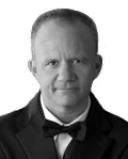
Genetics
Defined: Information. It's not the thing you think it is.
What is Information?
Posted January 11, 2009
We live in the Information Age, but what is information? Mathematician Claude Shannon's answer to this question gave humanity the mathematical underpinnings of the information age. The answer is surprising, because people often think of information as content that a sender puts into (encodes) a channel--like a tube--which the receiver then takes out (decodes) at the other end. This view is wrong, because information is not found in the sender, the channel, or the receiver. It isn't found anywhere, because information isn't a thing; it is a relation.
Let's say that I am uninformed, that I do not know whether Annie Oakley was a good shot. Where is the information that will inform me? It isn't in the bullets she shoots. Nor is it in the moving targets at which she shoots. Nor is it in her gun that tracks (or leads) the targets. Information exists in the relationship between the moving gun, the moving bullet, and the moving target; information exists in whether she hits the targets. Similarly, information isn't in the chocolate that I enjoy with my coffee; nor is it in my waistline. Information exists in the relationship between my chocolate intake and my varying waistline.
What sort of relationship is information? It is a reduction in the variability of a system, a decrease in chaos. Why, I might ask, is my waistline expanding? Is it bad karma? Lousy genes? Too much coffee? My random guessing continues until I consider how my waistline seems to change with the varying amounts of chocolate that I eat. Then my befuddlement, my random guessing, my system variation is reduced. Suppose I am confused about when Columbus sailed across the Atlantic. I guess wildly: 1422, 1490, 1500.... My variable responses continue until I look it up and read, "1492." The encyclopedia did not contain information about when Columbus sailed, but it did inform my response to the question. The next time I wonder about Columbus' voyage, I'll invariably answer, "1492."
The evolutionary biologist Stephen Jay Gould articulated the idea of variation as essence in his essay, "The Median Isn't the Message," which explained how to think about statistical averages:
"The point is a subtle one, but profound--for it embodies the distinctive way of thinking in my own field of evolutionary biology and natural history.
We still carry the historical baggage of a Platonic heritage that seeks sharp essences and definite boundaries. (Thus we hope to find an unambiguous "beginning of life" or "definition of death," although nature often comes to us as irreducible continua.) This Pla-tonic heritage, with its emphasis in clear distinctions and separated immutable entities, leads us to view statistical measures of central tendency wrongly, indeed opposite to the appropriate interpretation in our actual world of variation, shadings, and continua. In short, we view means and medians as the hard "realities," and the variation that permits their calculation as a set of transient and imperfect measurements of this hidden essence.... But all evolutionary biologists know that variation itself is nature's only irreducible essence. Variation is the hard reality, not a set of imperfect measures for a central tendency. Means and medians are the abstractions.
Information is the process by which you interact with a system such that the result is reduced randomness or uncertainty. A blueprint helps to reduce the entropy in the process of building a house. A route plan helps reduce the chaos of going on a trip--if, that is, you follow the plans.
Gould, S. 2002. "The Median Isn't the Message." http://cancerguide.org/median_not_msg.html.
Shannon, C. 1948. "A Mathematical Theory of Communication." Bell System Technical Journal, 27: 379-43, 623-56.
Excerpted from Lasting Contribution: How to Think, Plan, and Act to Accomplish Meaningful Work by Tad Waddington. Find out more at http://www.lastingcontribution.com.

